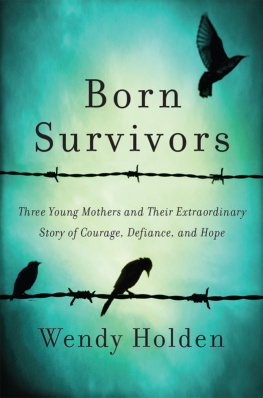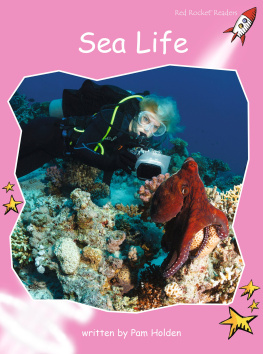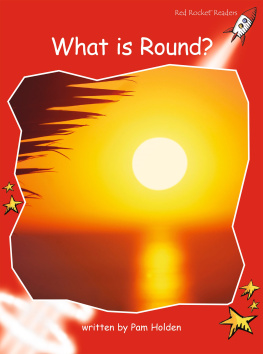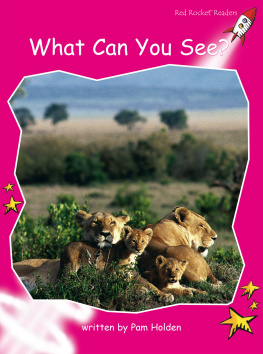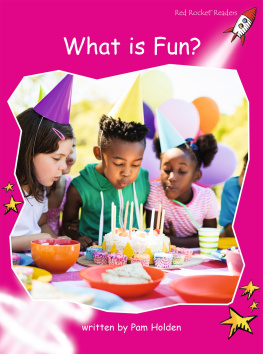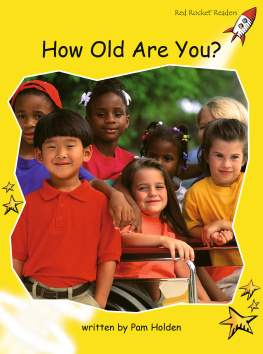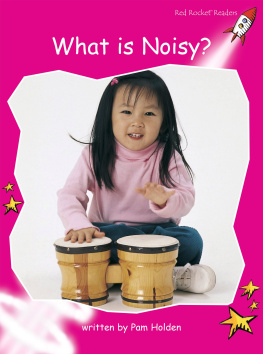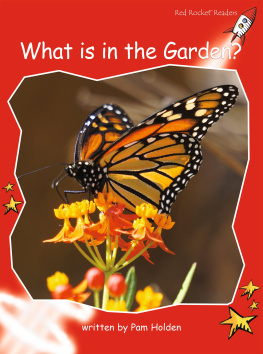Holden - Born Survivors
Here you can read online Holden - Born Survivors full text of the book (entire story) in english for free. Download pdf and epub, get meaning, cover and reviews about this ebook. year: 2015, publisher: Little, Brown Book Group, genre: Non-fiction. Description of the work, (preface) as well as reviews are available. Best literature library LitArk.com created for fans of good reading and offers a wide selection of genres:
Romance novel
Science fiction
Adventure
Detective
Science
History
Home and family
Prose
Art
Politics
Computer
Non-fiction
Religion
Business
Children
Humor
Choose a favorite category and find really read worthwhile books. Enjoy immersion in the world of imagination, feel the emotions of the characters or learn something new for yourself, make an fascinating discovery.
- Book:Born Survivors
- Author:
- Publisher:Little, Brown Book Group
- Genre:
- Year:2015
- Rating:5 / 5
- Favourites:Add to favourites
- Your mark:
- 100
- 1
- 2
- 3
- 4
- 5
Born Survivors: summary, description and annotation
We offer to read an annotation, description, summary or preface (depends on what the author of the book "Born Survivors" wrote himself). If you haven't found the necessary information about the book — write in the comments, we will try to find it.
Born Survivors — read online for free the complete book (whole text) full work
Below is the text of the book, divided by pages. System saving the place of the last page read, allows you to conveniently read the book "Born Survivors" online for free, without having to search again every time where you left off. Put a bookmark, and you can go to the page where you finished reading at any time.
Font size:
Interval:
Bookmark:
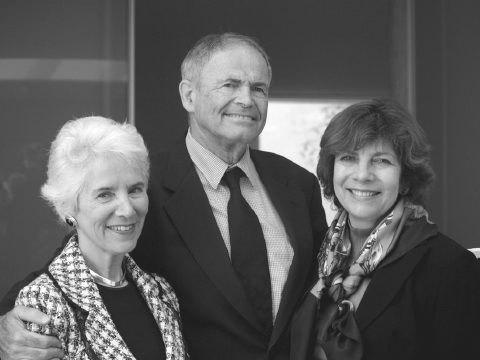
Eva, Mark and Hana
Published by Sphere
ISBN: 978-0-7515-5740-4
Copyright 2015 Wendy Holden
The moral right of the author has been asserted.
All rights reserved. No part of this publication may be reproduced, stored in a retrieval system, or transmitted, in any form or by any means, without the prior permission in writing of the publisher.
The publisher is not responsible for websites (or their content) that are not owned by the publisher.
Sphere
Little, Brown Book Group
Carmelite House
50 Victoria Embankment
London EC4Y 0DZ
www.littlebrown.co.uk
www.hachette.co.uk
Sometimes even to live is an act of courage.
Seneca
This book is dedicated to the courage and tenacity of three mothers and to their babies, born into a world that didnt want them to exist
Three women pregnant by their husbands.
Three couples praying for a brighter future.
Three babies, born within weeks of each other in unimaginable circumstances.
By the time they arrived, each weighing less than three pounds, their fathers
had been murdered by the Nazis and their mothers were walking skeletons,
living moment to moment in the same concentration camp.
Somehow, all three women managed to survive.
Against the odds, their babies did too.
Seventy years on, these siblings of the heart have come together
for the first time to tell the remarkable stories
of the mothers who defied death to give them life.
All of them, born survivors.
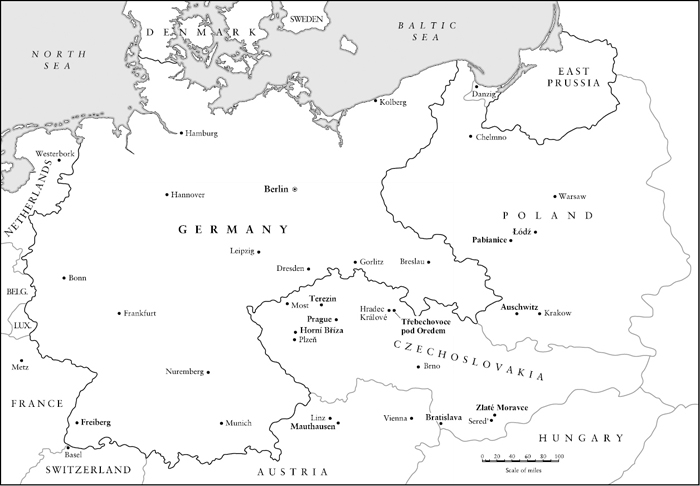
The stories of these survivors have been carefully pieced together from their memories as recorded in letters and accounts they shared privately with their families, and from statements they gave to researchers and historians over the years. They have been reinforced with painstaking investigation and by the testimonies of others alive and dead.
Wherever possible those memories have been corroborated by independent witnesses, archive material and historical records. Where exact details or conversations were beyond direct recollection or have been repeated to others over the years with only slight variation, they have been summarised based on the information available, and may not be precisely as others remembered them.
We are indebted to Wendy Holden for her total empathy with our respective mothers and her inexhaustible energy in retracing the harrowing steps through their wartime experiences. In the process, she has given us not only hitherto unknown information but drawn we three babies closer together as siblings, and we will be forever grateful.
We are also grateful to have Wendy research and acknowledge the selfless conduct of the Czech citizens of Horn Bza who did their utmost to provide food and clothing to our mothers and the prisoners of two other camps in the death train on the way to Mauthausen concentration camp. And we continue to admire the tenacity, diligence and skill with which Wendy has tracked and described the efforts of the members of the 11th Armored Division of the Third US Army who were instrumental in liberating Mauthausen and in giving our mothers and us a new lease of life.
All of our mothers would have been honoured that their stories have finally been told in full after all these years, devoting to each one-third of this amazing book, which is fortuitously timed to mark our seventieth birthdays and the seventieth anniversary of the end of the war.
We thank you, Wendy our new honorary sister on behalf of we who were born into a regime that planned to murder us but who are now destined to become some of the last survivors of the Holocaust.
Hana Berger Moran, Mark Olsky and Eva Clarke, 2015
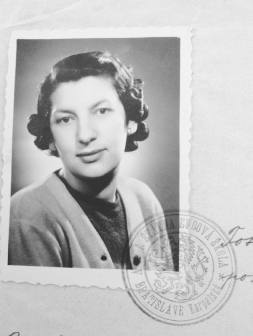
Priska Lwenbeinovs identity card
Sind Sie schwanger, fesche Frau? (Are you pregnant, pretty woman?) The question directed at Priska Lwenbeinov was accompanied by a smile as her SS inquisitor stood, legs apart, looking her up and down with forensic fascination.
Dr Josef Mengele had halted in front of the twenty-eight-year-old Slovak teacher as she stood naked and shivering with embarrassment on an open parade ground within hours of arriving at Auschwitz II-Birkenau. It was October, 1944.
Priska, at just under five feet tall, looked younger than her years. She was flanked by approximately five hundred other naked women, few of whom knew each other. All Jewish, they were as stupefied as she was after being transported to the concentration camp in Nazi-occupied Poland from homes or ghettos across Europe, packed sixty at a time into sealed freight wagons of trains up to fifty-five cars long.
From the moment they emerged gasping for air onto the notorious railway Rampe in the heart of the Nazis most efficient extermination complex, known collectively as Auschwitz, theyd been assailed on all sides by shouts of Raus! (Get out!) or Schnell, Judenschwein! (Quick, Jewish swine!)
In confusion and commotion, the tide of humanity was shepherded by expressionless prisoner-functionaries in filthy striped uniforms who jostled them across rough ground as SS officers stood in immaculate uniforms, their attack dogs straining on their leashes. There was no time to look for loved ones as men were swiftly separated from women, and children pushed into a line with the sick and elderly.
Anyone too weak to stand or whose limbs were stiff from being squashed into an airless wagon for days was prodded with rifles or beaten with whips. Heartbreaking cries of My children! My babies! hung ominously in the dank air.
Up ahead of the long columns of dispossessed sat two low redbrick buildings, each with an immense chimney spewing oily black smoke into a leaden sky. The grey atmosphere was thick with a putrid, cloying smell that assaulted the nostrils and caught at the back of the throat.
Severed from friends and families, scores of young women from their teens to their fifties were funnelled into a narrow corridor of electrified fencing like that which surrounded the vast camp. Shocked into silence, they stumbled over each other as they were driven past the chimneys and along the lip of several deep ponds until they reached a large single-storey reception building the Sauna or bath house hidden among birch trees.
There they were unceremoniously inducted into the life of a concentration camp Hftling (inmate), a process that began with them being forced to relinquish any last possessions and divest themselves of all their clothing. Without a common tongue, they protested in a clamour of languages but were beaten or intimidated into compliance by SS guards with rifles.
Driven naked down a wide passageway to a large chamber, almost all of these mothers, daughters, wives and sisters were then roughly clipped of virtually every hair on their bodies by male and female prisoners as German guards leered.
Barely recognisable to each other after the electric razors had done their work, they were marched five abreast outside to the roll-call area where they waited barefoot in cold, wet clay for over an hour before facing their second Selektion
Next pageFont size:
Interval:
Bookmark:
Similar books «Born Survivors»
Look at similar books to Born Survivors. We have selected literature similar in name and meaning in the hope of providing readers with more options to find new, interesting, not yet read works.
Discussion, reviews of the book Born Survivors and just readers' own opinions. Leave your comments, write what you think about the work, its meaning or the main characters. Specify what exactly you liked and what you didn't like, and why you think so.


